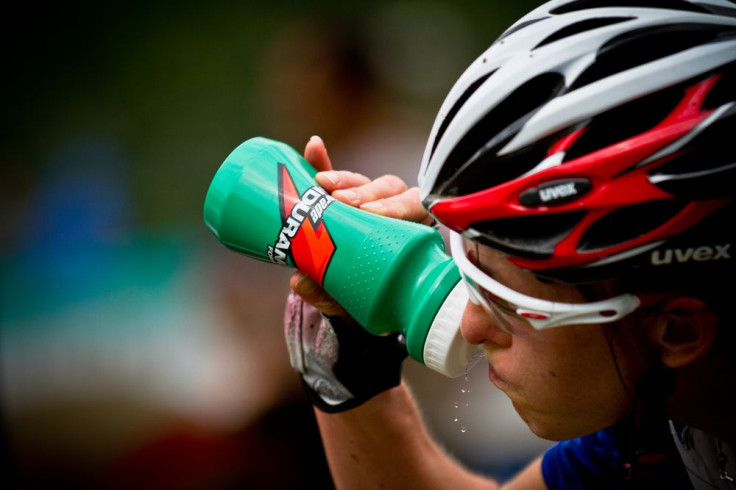Nutritional Supplement And Sports Drink Ads At Major Sporting Events Are Misleading The Public

Next to fast food, tobacco, and alcohol advertisements at major sporting events, nutritional supplements and rehydration drinks may seem like a wholesome alternative, but there is currently no evidence to prove that these products are conducive to a healthy lifestyle. A recent study conducted at the Institute of Sport, Exercise, and Active Living, in Melbourne suggests that nutritional supplement and sports drink sponsorship at sporting events could be misleading consumers.
"Successful sponsorship campaigns remove or minimize any scepticism about the product (a common reaction to advertising)," lead researchers Simon Outram and Bob Stewart said in a statement. "A form of seamless or hidden product association is created whereby such products come to be seen as integral to sport — the sports supplement or sports drink."
Outram and Stewart claim that marketing these products as “beneficial or essential” for athletic performance or general health can prevent the public from making an informed decision seeing as past research has failed to prove their benefit. Adding celebrity endorsement only helps to sway public opinion even further. The use of undeclared and banned substances that are often found in these products has also drawn the attention of the World Anti-Doping Agency.
A joint statement released by the American Dietetic Association, Dieticians of Canada, and the American College of Sports Medicine has outlined optimal nutrition for physical activity, athletic performance, and exercise recovery and even warned against the use of supplements that are popular among some athletes. It also questioned manufacturer and sporting authorities’ claims that these are effective in enhancing athletic performance.
"It is for good reason that nutritional supplement and sports drinks companies invest heavily in sports sponsorship," researchers explained. "Such sponsorship — together with associated product endorsements and advertising — conveys the message that their products are integral to sporting engagement and achievement."
Research published in BMJ online around the start of the 2012 Olympic Games in London has confirmed that people looking for a healthy beverage should turn to water over sports drinks. Most sports drink consist of carbohydrates that are usually sugar and contain around 150 calories. While there is no evidence that sports drinks such as Gatorade prevent dehydration, there have been reports of a new problem spurred on by excessive sports drink consumption known as overhydration. For example, the cause of death for a 28-year-old woman running in the 2002 Boston Marathon was deemed hyponatremia, too little sodium in her blood due to drinking too much fluid before and during physical activity.
"Sport may have found itself lending unwarranted credibility to products which would otherwise not necessarily be seen as beneficial for participation in sports and exercise or as inherently healthy products,” the research team added. "If sport authorities, teams, and sports personalities distanced themselves from supplement and drinks company sponsorship, ways would have to be found to cover the financial gap created. Lessons can be learnt from the history of tobacco sponsorship and its gradual restriction, which did not lead to the wholesale collapse of sport."
Source: Outram S, Stewart B. Should nutritional supplements and sports drinks companies sponsor sport? A short review of the ethical concerns. Journal of Medical Ethics. 2014.



























